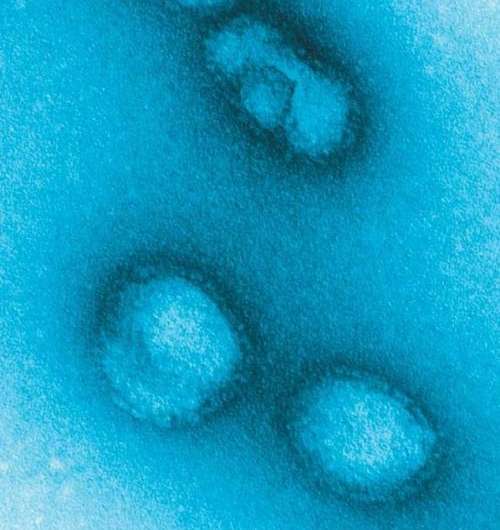Immunologist explains why the flu shot might not be as effective this year

You may have heard that this year's flu shot is less effective than normal. That's a scary prospect heading into the heart of flu season. But what exactly does that mean? Why would vaccines vary in effectiveness from year to year? To find out, I asked San Diego State University immunologist Joy Phillips to give me the rundown on how epidemiologists prepare for the annual onslaught of the influenza virus.
Let's start with the fact that what we call the flu can be one of dozens of known strains of the influenza virus, Phillips told me in her office at the Donald P. Shiley BioScience Center. You've probably heard of bird flu and swine flu (the latter of which your Curious Aztec became all too familiar with during the 2009 pandemic). These viruses, better known to scientists as H5N1 and H1N1, respectively, are both in the "influenza A" subtype, as are several others. There are also B and C subtypes, as well. And even within these strains, there can be slightly modified versions of each virus.
Viral variety
At any given time—not just during flu season—there are several of these strains going around in different parts of the world. Health organizations monitor infection patterns throughout the year and share data with one another.
"Then there's a central committee at the World Health Organization whose members basically spend their entire lives looking at what flu isolates are out there," Phillips said.
In February, this committee makes its official recommendation for which strains they think will be most prominent come flu season. Then, global medicine manufacturers develop vaccines which ready our immune systems for those particular types of flu.
The vaccine creation process involves exposing "about a bazillion" chicken eggs to the various strains of virus, Phillips said, then harvesting the immune system–priming antigens and converting them into an injectable shot or nasal spray. With our current technology, drug manufacturers can create vaccines that protect against three or four different strains. It's not a fast process. At minimum, it takes about six months to turn the WHO committee's recommendation into a flu shot.
Mutant virus
"In a good year, they pick right and the vaccine pretty well matches the different types of flu going around," Phillips said. "But this year, there's a mismatch."
The three strains targeted by the current flu shot are H1N1, H3N2 and a subtype B strain. However, around March of this year, epidemiologists noticed that a slightly mutated form of H3N2 was popping up—about a month too late for vaccine manufacturers to account for it. As a result, the current flu shot won't be as effective at readying the body to fight off this mutant strain of H3N2.
That's no reason not to get a flu shot, though. The vaccine is still very effective against the other two strains circulating this season, and it still might offer some degree of protection against H3N2, Phillips said.
One true flu
The Holy Grail for flu researchers would be developing a universal flu vaccine. Depending on your definition of "universal," that could mean a vaccine that protects against all influenza viruses, all flu viruses of a particular subtype, or all mutations of a particular strain.
Phillips and her colleagues are actively researching a way to develop antigens that recognize parts of the flu virus that don't change very much from season to season. In particular, they're looking into a tiny portion of a protein known as hemagglutinin that is common to all mammalian flu viruses.
"This small chain of about 10 amino acids does not mutate because the virus needs it to enter the cell," Phillips explained. "Without it, the virus isn't viable."
If Phillips can figure out a way to create antigens that tell your body's immune system to watch out for that little strip of viral protein, we just might get a universal flu vaccine. But success is likely still years away.
So for the foreseeable future, get your flu shots. They're not so bad, and if you ask nicely, you'll probably at least get a free sucker out of the deal.



















